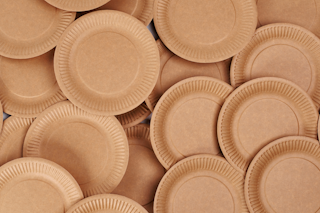
Compost
Brown bins have been used in MRC Brome-Missisquoi since fall 2018. Now, all citizens can also benefit from free compost for their garden!
A hearty congratulations to everyone who’s put in the work to be part of the solution. Let’s keep it up!
What can go in the brown bin?
- Food waste
- Garden waste
- Soiled unwaxed paper and cardboard
Compostable and biodegradable plastic bags are prohibited.
Accepted materials

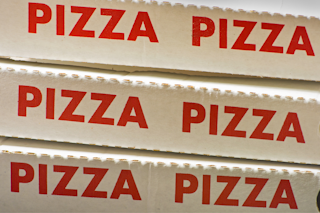
Pizza boxes

Flyers

Bagasse containers of packaging
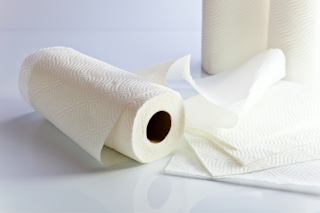
Paper towels (without chemical products) and tissues

Coffee filters
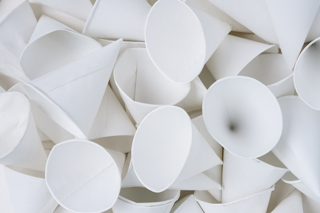
Cone water dispenser cups

Paper and parchment muffin cups

Newspaper for wrapping food waste
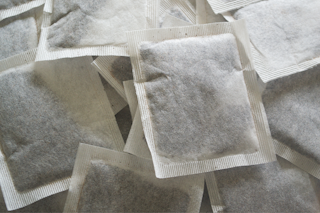
Tea bags
Remove any metal staples

Paper napkins and tablecloths

Expired food without any wrapping
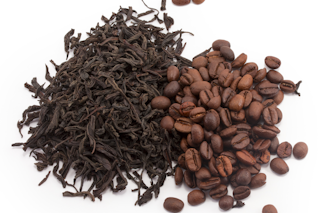
Coffee and tea
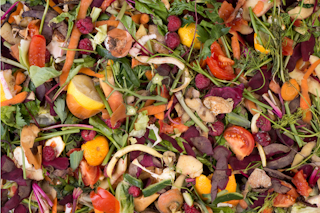
Fruits, vegetables and their peels

Nuts and their shells, legumes and rice

Eggs and eggshells
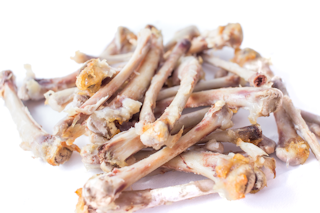
Bones, shellfish and seafood shells
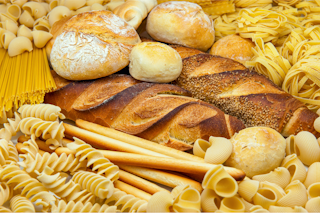
Bread, pastries, cereals and pasta
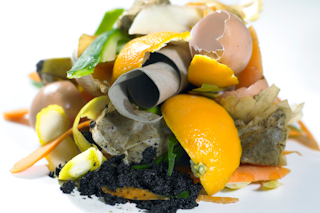
Table scraps

Meat, fish, deli meats and dairy products

Conifer needles and cones
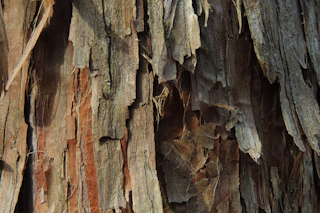
Twigs and bark
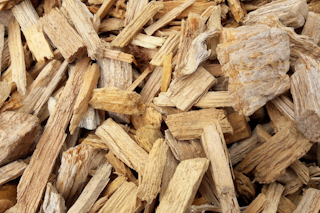
Untreated wood shavings

Leaves, dead flowers and grass

Straw, hay, thatch
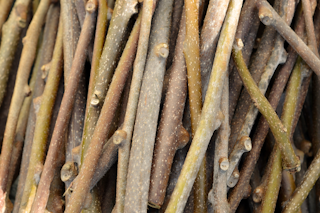
Small branches
Less than 4 cm wide and 60 cm long
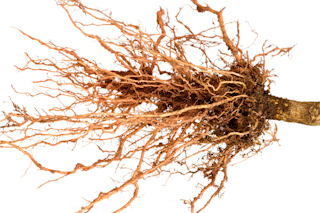
Small roots

Hedge trimmings
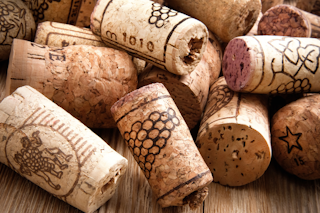
Corks
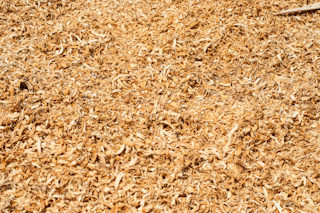
Sawdust

Wooden skewers and toothpicks
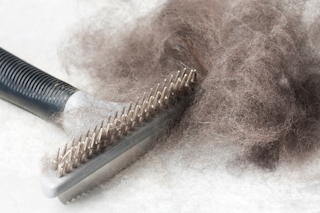
Hair and dust
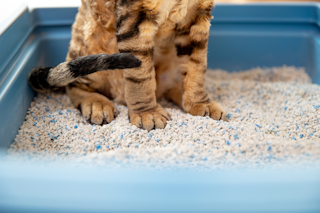
Pet litter and excrement, loose or in paper bags
For farm animals, only horse and poultry manure is accepted
Refused materials

Dead animals (carcasses) and animal waste

Painted or treated wood and tree stumps

Stickers on fruit and vegetables

Diapers and sanitary products

Invasive alien species
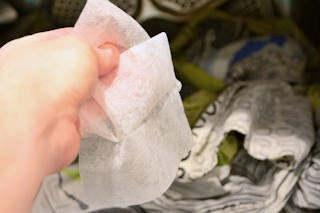
Fabric softener sheets and vacuum cleaner bags
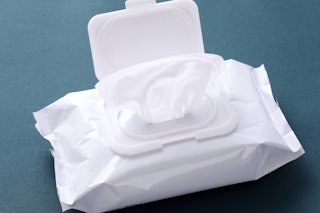
Wet wipes

Cigarette butts

Cotton balls, wipes and cotton swabs

Paper and cardboard soaked in motor oil, paint or hazardous materials
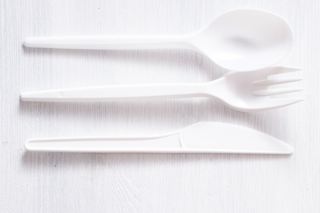
Plastics, whether compostable, biodegradable or not
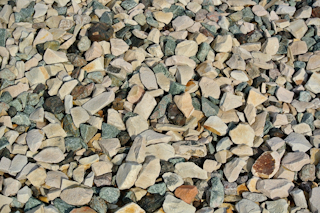
Rocks and gravel
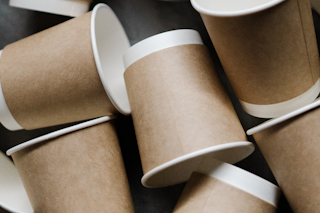
Single-use coffee cups and lids
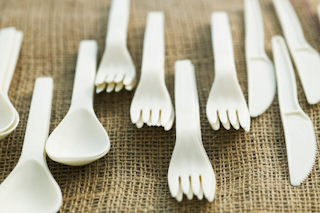
Compostable plastic dishes, utensils or coffee pods

Glass items
FAQ
The composting platform at the Zone Éco in Cowansville cannot accept materials packaged in these types of bags due to the odours emitted when plastic bags are opened.
That’s why the regional ecocentre’s certificate of authorization, granted by the Ministère de l’Environnement, de la Lutte contre les changements climatiques, de la Faune et des Parcs (MELCCFP), does not allow it to accept materials in “plastic” bags.
In fact, more importantly, compostable and biodegradable plastic bags take much longer to compost than other materials. This means that at the end of the composting cycle, shreds of these bags can be found in the end product, and they are very difficult to sift out.
Since fall 2019, mature compost is sifted and analyzed to ensure its quality. Compost available to residents can be found at the Zone Éco (Régie intermunicipale de gestion des matières résiduelles de Brome-Missisquoi).
You must bring your own shovel, gloves, buckets or containers and other necessary equipment so that you are able to take however much compost you want.
Visit the tips and tricks section bellow to see how you can easily avoid these small inconveniences. The most important tip: Put your compost bin out each pick-up, even if it’s nearly empty, especially during the summer months.
Compostable/biodegradable dishes and utensils are not allowed for a similar reason that compostable/biodegradable plastic bags are not allowed. It takes these materials a much longer time to decompose than other organic materials.
As a result, pieces of these dishes and utensils end up in the compost at the end of the composting cycle and are difficult to remove. This compromises the quality of the final product, which prevents farmers and other residents from being able to use it.
The municipalities own the brown bins, as required by the terms of the ministerial grant for the Zone Éco (Régie intermunicipale de gestion des matières résiduelles de Brome-Missisquoi).
If any part of your bin is damaged, whatever the reason, your municipality will handle its repair or replacement.
Simply call or email them and let them know what the issue is.
The 240-litre bin is the minimum size for mechanical collection, as carried out by your municipal contractor (the truck’s clamps cannot lift a smaller bin).
In addition, 240-litre bins are more durable and less prone to being knocked over by the wind or animals. The large size will also allow you to collect some of your garden waste and other green waste.
If you have the opposite problem of not enough space, contact your municipality to see if you can get a second bin.
The brown bin is a good addition to your home composter as some products (meat, fish, fat, dairy, etc.) cannot be composted at home.
For this reason, it’s been shown that households that compost at home will still put about 2 kg of material into their brown bin each week. In one year, that adds up to 100 kg per household or one tonne per ten households. Composting small amounts every week adds up quickly!
Consult our practical guide or RECYC-QUÉBEC’s mini-guide to home composting for more tips and tricks.
If you want to keep using the bags that came with your rolling bin, you can get them from hardware stores and supermarkets.
Paper grocery bags also work well, or you can wrap your table scraps in a newspaper or flyers. It’s the same result at no cost to you—with the added eco-friendly bonus of reusing them!
You can also put loose materials in the bin; however, your bin will need to be cleaned more regularly.
Watch this video (French only) produced by the municipality of Cowansville and learn how to make your own paper bags for your compost bin.
Remember that all plastic bags—even those labelled “compostable” or “biodegradable”—are not accepted in the bin and can’t be used to bag your compost.
Leaving on a vacation? Remember your organic materials!
Put your brown bin out the week before you leave, then clean it and leave it empty until you return, storing any organic materials in the freezer or refrigerator in the days leading up to your vacation.
In the summer, odour and fly problems can develop if bins are left in the heat too long without being emptied.
The collected materials are transported to the composting platform of the Zone Éco (Régie intermunicipale de gestion des matières résiduelles de Brome-Missisquoi) in Cowansville.
The materials from the brown bin are mixed in with wood and other green waste, then piled outside in windrows (rows of compost).
These windrows are turned regularly to speed up the decomposition process and allow the compost to reach a high enough temperature to destroy weed seeds and pathogens.
Mature compost is then sifted.
In addition to being an invaluable resource for compost production and soil enrichment, these materials are also particularly problematic in landfill sites.
When organic materials are sent to landfills, they decompose in the absence of oxygen. This emits significant amounts of greenhouse gases and other compounds that harm the environment and our health.
According to the MELCCFP, 5.8% of Quebec’s greenhouse gas emissions in 2017 were caused by garbage—most of which was caused by organic materials in landfills.
The Quebec Residual Materials Management Policy sets waste management objectives for municipalities. More objectives are set in the Stratégie de valorisation de la matière organique (French only), which states that by 2025, the entire province must provide organic materials management.
That’s why we all have to work together to stop sending these waste materials to landfills and help our municipalities avoid government fines. This objective is included in the Brome-Missisquoi MRC’s Residual Materials Management Plan (RMMP) and has been implemented through the collection of brown bins in all of its municipalities since September 2018.
No, mulch is not available. The shredded branches are used at the composting facility as structural material.
How do I begin composting?
Do your homework
Before you start composting, it’s normal to have a few questions about composting: What can you put in your composting bin? What can’t you? When will your bin be collected? (Check out your municipality’s website for details.)
Install a mini bin in a convenient location
Find the right spot for your mini bin based on your kitchen habits. Place it next to your waste container or near where you usually prepare your food.
Wrap up your waste
You can wrap your materials in newsprint or flyers (unwaxed paper with no staples). This will keep your bin clean longer between washes."
Tips and tricks
You can wrap your materials in brown paper grocery bags, newsprint, flyers or cardboard. Doubling or tripling up the layers will often prevent liquids from leaking out.
OR
Make your own paper bags from flyers or newsprint. The folding technique is very simple, shown in this short video from the town of Cowansville (French only).
OR
Use the “candy wrapper” technique, which consists of wrapping up scraps in newspaper and twisting the ends to close the wrapper."
Paper bags are distributed with your rolling bin to make it easier to start composting.
Once you’ve used them all, you can buy new ones at grocery and hardware stores or use newspapers or flyers as mentioned above.
You don’t need to wrap the materials before putting them in the rolling bin. Everything can be placed directly from your mini kitchen container into the bin in bulk. However, you’ll need to wash both bins more frequently.
Even if you wrap your materials, it is important to clean both the mini kitchen bin and the rolling bin with soap and water to avoid any issues.
Our best tip for a smart, simple way to use your brown bin? Keep “smellier” materials (meat, fish, dairy and other animal products) in the freezer until collection day.
You can also keep them in the refrigerator, if you’re short on space, with roughly the same result.
Fruit and vegetable peels, bread, coffee and other materials that don’t give off bad odours can be safely stored under the counter in your mini kitchen bin. Of course, you still have to empty it regularly into the bin outside.
The brown bin should be seen as complementary to home composting. It’s been shown that home composting isn’t possible for all residents and doesn’t reclaim all the organic waste produced by a household.
For example, it’s impossible to put meat, fish, fats, sweets, food-soiled paper and cardboard, or weeds going to seed in a home composter.
Households with home composters will still put 1.5 kg to 2.5 kg of materials into their brown bins each week, which adds up to 100 kg per year! Just ten homes would divert and reclaim roughly one tonne of materials from landfills each year! Not to mention that in winter, the brown bin is easier to access than the compost bin way back in the yard.
Door-to-door brown bin collection is still to this day the only way to reclaim all organic materials.
Myths
FALSE.
It’s true that cold weather slows down the decomposition of organic materials, but it doesn’t stop it completely. This means it’s possible to compost even in winter—you’ll just need a bit more patience.
FALSE.
Residents can access free compost at the regional ecocentre located in Cowansville. Some municipalities also offer a local drop-off point.
The composting platform at the Zone Éco (Régie intermunicipale de gestion des matières résiduelles de Brome-Missisquoi) conducts quality tests on the compost to ensure it can be used by residents and farmers as a fertilizer.
This is why it’s important to compost properly—so that the result is a quality end product that can be returned to the soil.
FALSE.
It’s true that you can put garden waste in your compost bin, but invasive alien species (IAS) should not be composted to limit unwanted spreading.
Additionally, branches wider than 4 cm and longer than 60 cm are not accepted.